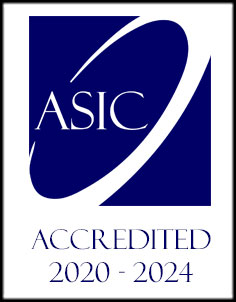Overview
Cyber influence activities and disinformation during elections by external actors is a growing phenomenon. The spread of nefarious messaging and “fake news”, often across social media platforms, has increased exponentially since the 2016 and 2020 U.S. Presidential elections. With modern online communication blurring traditional jurisdictional lines, the need for a coordinated or “whole of society” approach is paramount to inoculate democracies and their citizens against these growing threats. While the spread of propaganda and conspiracy theories during elections is not new, what is unprecedented is the vast reach these messages can now encompass against the wider voting public, exacerbated by the lingering effects of the global pandemic.
Welcome to ICPS’s professional certificate course on dealing with cyber influence activities during elections by external actors. Over the four-day program, subject matter experts from civil society, the government & security sector, academia, and private industry will offer their insight towards building resilience against the above mentioned election threats. By the end of the programme, course participants should have a better understanding of what constitutes modern hybrid and disinformation threats during elections, and how to mitigate their impact. Recent election case studies will be explored, as well as personal testimonials from organisations and individuals that have dealt directly with negative influence activity efforts. While not a traditional cyber security course, certain techniques and tools will also be presented that could assist the participants in buildings hybrid threat resilience within their respective organisations.
The ICPS team truly hopes you enjoy the course.
Agenda
Day 1 - Monday - 27 February
| Day 1 - Timings | Topic | Organisation |
|---|---|---|
| 14:00 - 14:45 (All times Brussels) |
Course Introduction, outline, and definitions | ICPS |
| 15:00 - 15:45 | Disinformation and the “Chain of Harm” | IFES |
| 16:00 - 16:45 | Case Study: Georgia | IFES |
Day 2 - Tuesday - 28 February
| Day 2 - Timings | Topic | Organisation |
|---|---|---|
| 14:00 - 14:45 (All times Brussels) |
Case Study: USA | Auburn University, USA |
| 15:00 - 15:45 | Case Study: USA | U.S. Election Assistance Commission |
| 16:00 - 16:45 | Case Study: USA | ICPS |
Day 3 - Wednesday - 1 March
| Day 3 - Timings | Topic | Organisation |
|---|---|---|
| 14:00 - 14:45 | External actors: Hybrid disinformation | Finnish Institute of International Affairs |
| 15:00 - 15:45 | Case Study: Sweden | Swedish Election Authority |
| 16:00 - 16:45 | Case Study: South Africa | IEC of South Africa |
Day 4 - Thursday – 2 March
| Day 4 - Timings | Topic | Organisation |
|---|---|---|
| 13:00 - 13:45 | Social Media as a hybrid tactic: Gender based disinformation | International IDEA |
| 14:00 -14:45 | Case Study: Mexico | Electoral Tribunal of the Federal Judiciary, Mexico |
| 15:00 - 15:45 | Election Management Risk Tools | International IDEA |
*Note: The course begins an hour earlier on Day 4.
Chatham House Rules: All presentations will follow strict Chatham House rules of non-attribution in order to stimulate open discussion and ensure everyone’s collective security.
This course is a combination of in-person and online instructors & participants

